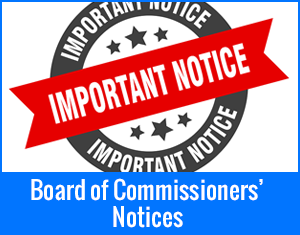
- By Mary Jac Brennan
- Posted Monday, June 30, 2014
Sales and Use Tax: Collection and Remittance by Farmers on product sales
In 2013 the General Assembly passed changes to tax law that became effective January 1, 2014. These changes created questions as to how some farms may become subject to an expanded sales tax base or not on products they sell, as well as, qualifying for sales tax exemption on farm inputs. House Bill 1050, passed by the General Assembly and signed by the Governor on May 29, 2014 provides clarification to some of these questions.
Click the links to FACT SHEETS prepared by Guido van der Hoeven, Extension Specialist / Senior Lecturer, Department of Agricultural and Resource Economics, NC State University with a summary on House Bill 1050 and the July 16, 2009 NCDOR Communication entitled “Understanding Sales Taxes On Agricultural Products”
As of January 1, 2014, there is a requirement that the farmer attests that the products sold by the farmer, at the farmer’s market, are his/her own production. The North Carolina Department of Revenue (NCDOR) provided guidance through Directive on February 28, 2014 which requires that a statement of attestation is to be given to the manager/operator of the farmer’s market. Click this link to go to the NC Department of Revenue.
Sales and Use Tax: Sales tax exempt purchase of farming inputs:
Clarification in HB 1050 provides that qualifying farmers, in order to purchase farm inputs exempt from sales tax, must have $10,000 of gross farm income from the preceding tax year in order to qualify for the exemption or $10,000 of gross farm income as an average of the preceding 3 taxable years. This may affect operators of small farms as gross farm income may be variable due to weather conditions.
Qualifying farmers will use Form E 595 QF to apply for a new exemption certificate. These new certificates will begin with a number 7 and need to be in force by October 1, 2014. The old exemption certificates (begin with the number 1) are valid until October 1. 2014. NC DOR estimates it will take 60-90 days to process new applications. Farmers will attest to having qualifying income. View and print the exemption certificate.
Further, HB 1050 allows for a Conditional Exemption. The conditional exemption is useful to beginning farmers who have no history of farm production. To receive a conditional exemption, the beginning farmer must certify they intend to engage in farming. The conditional exemption number will begin with the number 8. The conditional exemption certificate is valid for the taxable year in which it is issued and the two subsequent years. The holder of the conditional certificate must provide the NCDOR copies of applicable State and Federal income tax returns within 90 days of the end of each tax year the certificate covers. The conditional exemption certificate is not renewable. The link to the application form for the conditional exemption using Form E 595CF is below. View and print the certificate.
Misuse of the Exemption Certificate is subject to a $250.00 fine.
THIS INCOME THRESHOLD IS NOT TO BE CONFUSED with the $1,000 of agricultural product produced as an average, over 3 years, for property tax purposes to qualify for Present Use Value program.
Sales and Use Tax: NEW agricultural exemption certificate to be required.
HB 1050 provides that qualifying farmers who have an agricultural exemption certificate number issued prior to July 1, 2014 (an old exemption number) should apply for a new one as soon as possible so that the new numbers are valid prior to October 1, 2014 and farm input purchases can remain sales tax exempt and not affect farm cash flow.
Holders of agricultural exemption certificate numbers issued prior to July 1, 2014 (old numbers) may continue to use these certificate numbers on qualifying purchases made prior to October 1, 2014. If, however, the exemption certificate is not valid, the holder must notify vendors and pay sales tax on now none qualifying purchases.
Bottom line, farmers will need new agricultural exemption certificate numbers either as a Qualifying Farmer exemption or beginning farmer, for example, allowed to use a Conditional Exemption.






